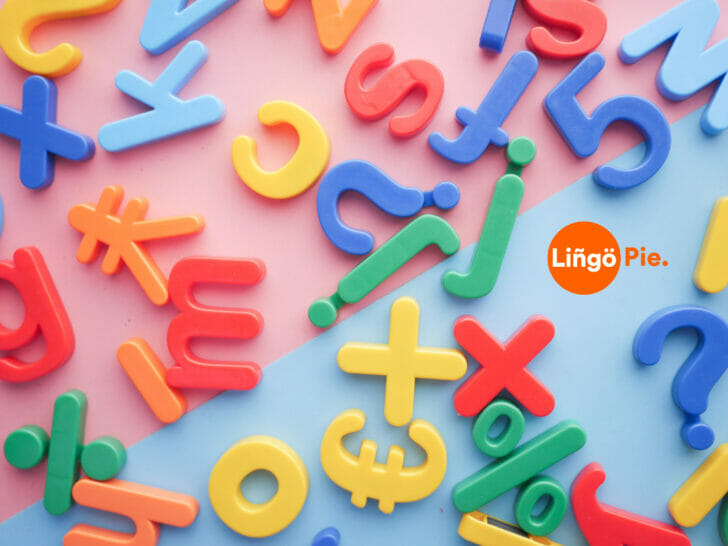Opening Doors to Cultural Exploration and Understanding
In the realm of homeschool education, there is an incredible opportunity to cultivate not only academic knowledge but also a deep appreciation for different cultures and languages.
Learning a language is crucial in this pursuit because it allows us to explore and understand different cultures right from the comfort of our own homes.
When children engage in language learning, they embark on a journey that goes beyond words and grammar. They explore the diversity of a new culture, gaining a deeper understanding of its traditions, values, and way of life.
Whether it’s through the melodies of a foreign language, the rhythm of its speech, or the nuances of its expressions, language learning paves the way for a broader understanding of the world. It fosters empathy, breaks down barriers, and allows homeschoolers to connect with people from different backgrounds, fostering a global mindset from an early age.
As we navigate an increasingly interconnected world, language learning equips our children with the tools to embrace diversity, appreciate other cultures, and become true global citizens.
Promoting multiple languages and global citizenship
A remarkable aspect of homeschool education is the freedom to choose which languages to introduce and cultivate in the curriculum.
One language that holds tremendous value is Spanish. When we incorporate Spanish language learning into homeschooling, we foster multilingualism and cultivate global citizenship in our children.
Learning Spanish offers a gateway to the rich cultures and diverse communities of the Spanish-speaking world. From vibrant festivals and captivating literature to mouthwatering cuisines and historical landmarks, Spanish opens up a myriad of opportunities for cultural exploration.
Spanish is the second most spoken language worldwide, making it an invaluable asset for future academic and career pursuits. When our children learn Spanish, they develop not only linguistic skills but also an appreciation for the diversity and interconnectedness of our global society.
They become equipped with the tools to communicate, connect, and collaborate with Spanish speakers from different parts of the world, broadening their horizons and fostering a sense of global citizenship.
Enhancing Cognitive Development Through Language Acquisition
Language acquisition in homeschooling goes beyond the mere acquisition of words and grammar rules; it is a cognitive journey that strengthens and enhances overall brain development.
Language learning has been linked to improved memory retention, cognitive flexibility, and multitasking skills. As we integrate language acquisition into homeschooling, we provide our children with invaluable cognitive stimulation, which enhances their overall learning ability and prepares them for success in a variety of academic disciplines.
Language Learning Tools and Resources for Homeschooling Families
Homeschooling families have access to various tools and resources that can support and enhance the language learning journey.
- One powerful resource is the abundance of online platforms and apps specifically designed to facilitate language acquisition. These platforms offer interactive lessons, engaging exercises, and immersive experiences that bring language learning to life within the comfort of home.
- Educational programs designed for language learners provide an excellent opportunity to supplement the homeschool curriculum. Through captivating storytelling and authentic dialogue, these programs expose children to the rhythms, sounds, and nuances of the Spanish language. They provide a window into the vibrant cultures of Spanish-speaking countries, making language learning an enjoyable and culturally immersive experience.
- Language Learning Games: Word games tailored to specific languages can add fun and interactivity to the language learning experience for homeschooling families.
- Popular flashcard apps can allow homeschooling families to create customized flashcards for vocabulary building and review.
- Different platforms connect language learners with native speakers worldwide, facilitating language practice through virtual conversations and cultural exchange.
- Watching Spanish shows to learn Spanish with subtitles can help children improve their listening and comprehension skills, while also exposing them to different accents and cultural nuances.
The advantages of teaching languages early in homeschool education
Introducing children to a new language at a young age, can develop a strong foundation in the language and build their skills over time.
Improved cognitive abilities, enhanced communication skills, and a broader understanding of different cultures can be some of the benefits of early language learning. Also, early language learning can help children develop a love for language and a curiosity for other cultures, which can serve them well throughout their academic and personal lives.
If we prioritize language learning in homeschooling, parents will provide their children with a valuable resource that can open up a world of opportunities and enrich their lives in countless new ways.
Strategies for Successful Language Learning at Home
Studying from home can be an ambitious but enjoyable and creative goal. If we overcome these potential challenges with love, patience, and perseverance, they will be solved and we will have the opportunity to have beautiful experiences.
- We recommend listening to music, podcasts, watching movies or TV shows, or engaging in conversations with native speakers to incorporate the new language into the daily routine.
- Is very important to lose the shame and fear of making mistakes. Of course, it can happen at the beginning, but it is something that must be worked on because starting to speak in the target language is what will enhance our skills.
- Regular practice will make a significant difference in the fluency and confidence with which you will use the language in real-life situations.
- Immersion experiences, language exchange programs, and online conversation groups can provide valuable opportunities to practice and engage with the language.
- Setting realistic goals and celebrating milestones along the way also helps maintain motivation and progress.
- Leveraging technology, such as language learning apps and online resources, offers interactive and engaging ways to supplement homeschool language learning.
If effective strategies are in practice and commitment to the process is maintained, homeschoolers can navigate these challenges and discover how to become fluent in a language, achieving their language learning goals from the comfort of home.
Building Language Skills for Academic and Future Career Opportunities
Language skills acquired through homeschooling not only enrich children’s education but also open doors to academic and future career opportunities.
Language skills are highly valued in various sectors, such as business, diplomacy, education, and tourism. Prioritizing language learning in homeschooling, parents can equip their children with a valuable asset that can shape their academic journey and open up a world of career opportunities.
Preparing Homeschoolers for a Multilingual World
As our world becomes increasingly interconnected, homeschooling offers a unique opportunity to give our children the invaluable gift of multilingualism. With the ability to communicate in multiple languages, they will be better equipped to navigate diverse cultures and succeed in an ever-changing global landscape.
Embracing language learning in the homeschooling journey, we empower our children for a future that demands intercultural competence, global awareness, and effective communication across borders.
Through language acquisition, our homeschoolers develop not only linguistic skills but also a deep appreciation for diverse cultures, fostering empathy, and understanding.
As homeschooling parents, we have the privilege of nurturing their curiosity, guiding their language learning paths, and igniting their passion for lifelong learning.
Today we have the opportunity to contribute to a multilingual future for the children of the new generations, giving them the chance to forge meaningful connections, envision new horizons, and become citizens who contribute positively to our modern world.




